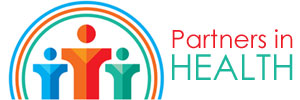Source: AAFP Washington, DC, Office
The U.S. House voted 407-5 on July 8 to approve the Comprehensive Addiction and Recovery Act (S 524). This bill, which is a compromise between the House and Senate versions, contains a number of provisions that the American Academy of Family Physicians supports. For example, the bill reauthorizes the National All Schedules Prescription Electronic Reporting (NASPER) Act which provides grants to states to establish, implement, and improve state-based prescription drug monitoring programs. The measure also authorizes the partial fill of Schedule II drugs to reduce the number of opioids being dispensed, and creates a state grant program to increase access to opioid reversal drugs.
However, the bill also contains provisions of concern to the American Academy of Family Physicians. For example, it would permit nurse practitioners and physician assistants who meet certain criteria to provide Medication-Assisted Treatment (MAT) in an office-based setting to as many as 30 patients in the first year and 100 patients after the first year.
The conference agreement also would allow prescription drug plans in Medicare, including Medicare Part D plans as well as standalone Medicare Advantage Prescription Drug Plans, to develop a safe prescribing and dispensing program for beneficiaries who are at risk of abuse or diversion of drugs that are frequently abused or diverted. The provision allows the U.S. Health and Human Services to work with private drug plan sponsors to facilitate the creation and management of “lock-in” programs to curb identified fraud, abuse, and misuse of prescribed medications while at the same time ensuring that legitimate beneficiary access to needed medications is not impeded.
While the compromise bill that the House approved did not include an increase in the limit of patients for which a physician can provide MAT, the administration has created a waiver that will allow physicians to offer MAT to as many as 275 patients.




